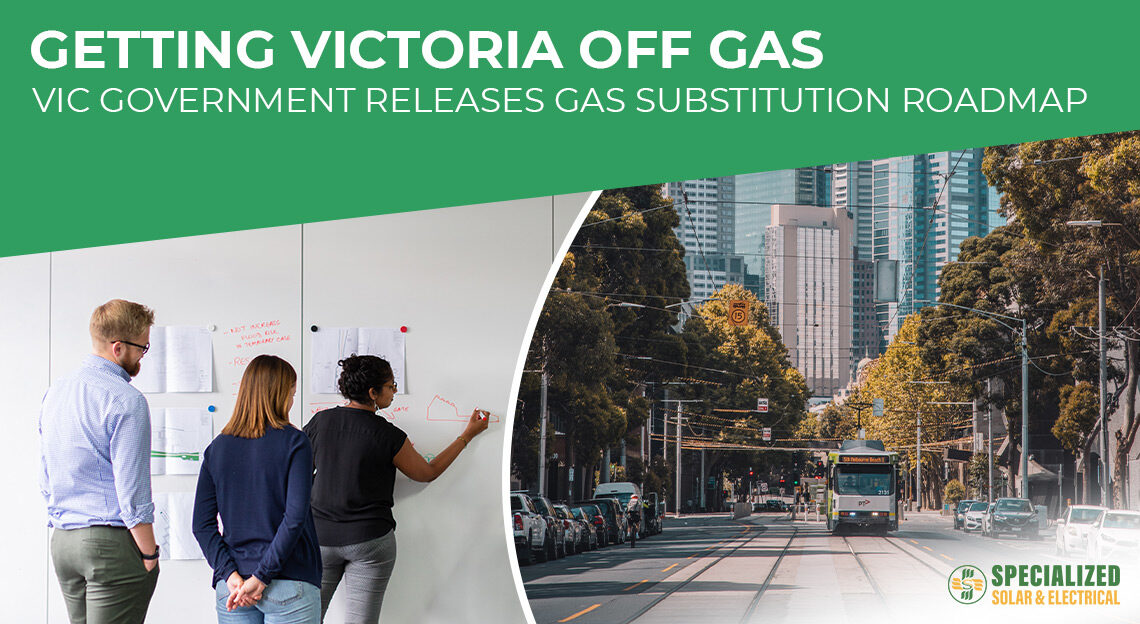The Victorian Government has released a Gas Substitution Roadmap outlining how Victorian households and businesses will be encouraged to get off gas and move to clean energy alternatives.
With gas prices skyrocketing due to the current energy crisis, helping people move off gas makes sense.
Gas is not only one of the dirtiest types of energy used in our homes, it’s also the most expensive.
Going electric limits the exposure of Victorian households and businesses to international prices. This is particularly true if the alternative sources of energy are renewable and generated locally.
The best way to save on energy bills is to switch to electric – and power it with solar.
And that’s what this roadmap is all about.
On this blog:
- Why does the Victorian Government want people to get off gas?
- What’s in the roadmap?
- How much can households save by switching from gas to electric?
Why does the Victorian Government want to switch people off gas?
Victoria is heavily reliant on gas. Over 2 million Victorians use gas to power their homes and businesses; more than in any other state or territory.
As a result, gas is a big contributor to greenhouse gas emissions in Victoria, accounting for over 17 per cent of total emissions.
Reducing the CO2 emissions from gas is vital if the state is to reach its net zero goal by 2050.
But this won’t be an easy fix. It will take time and money (from government) to help people change how their homes and businesses are powered.
Most homes use gas for cooking, hot water and – in many cases – space heating as well. Replacing these items will save households money in the long term. But purchasing energy efficient alternatives is a big cash outlay for most people.
That’s where the Gas Substitution Roadmap comes in.
What’s in the roadmap?
The roadmap outlines how electrification, hydrogen, biogas, and energy efficiency will be used to drive down power bills and cut carbon emissions.
Key roadmap initiatives:
- Remove laws that stipulate new homes must be connected to gas. Instead, gas connection is optional.
- Remove plumbing regulations that incentivised gas hot water to be installed in new buildings.
- Increase thermal efficiency standards for new homes from six to seven stars. This means new homes will be more comfortable, easier to heat and cool and cheaper to run.
- Introduce new incentives to replace gas water heating and space heating with efficient electric heating.
- End incentives for all gas appliances by the end of 2023.
How much can households save by switching from gas to electric?
The typical Victorian home can save around $2,720 a year by going all-electric, using solar power, and adding a medium size battery.
But starting small can save hundreds of dollars.
Upgrading to efficient electric appliances can save an existing dual-fuel home with solar panels $570 on heating and cooling, and a further $180 on hot water.
Completely converting your home to all-electric can save $1,250 a year. That’s in addition to savings from solar panels of around $950 a year for the typical home.
If you go further and add a medium battery, that saves another $520 a year.
Government solar rebates have helped millions of Victorians switch to solar.
Now, it seems the state government will provide more financial support to Victorian homes and businesses to switch their gas hot water, heating, and cooking to energy efficient electric alternatives.
That’s good news for household budgets – and good for the environment too.
Would you like advice on making the switch to all-electric and solar?
If you’d like expert advice on the costs and benefits of switching some – or all your appliances – from gas to electric, get in touch.
At Specialized Solar & Electrical, we don’t just do solar. We also provide energy efficiency advice and products to help our customers drive down power bills and electrify their homes. From heat pump hot water systems to reverse cycle air conditioning units and more besides, we’re ready to help you make the transition from gas to clean energy.












